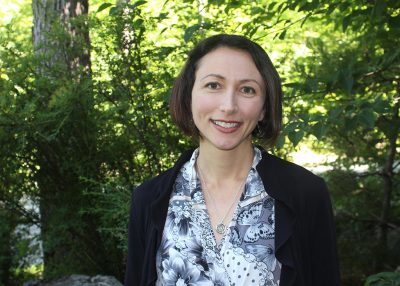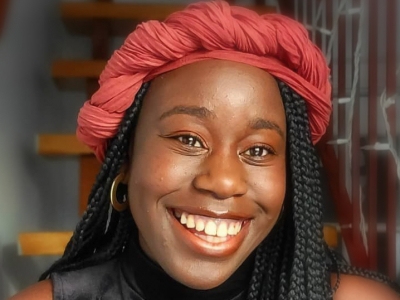By Karen Kelly
Recent research has indicated that menopause may be an especially tumultuous time for autistic people. With the support of a SSHRC Insight Development Grant, Professor Miranda Brady is collaborating with a research team that spans Canada and the UK to investigate the confluence of these two experiences in their “Bridging the Silos” project.

Christine Jenkins, (photo/CS Frost)
The idea for the project originated with Christine Jenkins, an Ottawa-based autistic advocate who is serving as the community research associate for the Canadian team. Brady and Jenkins previously worked together to organize a film screening and workshop related to autism and gender at Carleton. Jenkins experienced her own struggles with this life transition, including rapid and unexpected changes in sensory sensitivities and executive functioning amid “the stigma around menstruation, perimenopause and menopause.” Menopause can add to co-existing conditions experienced by many autistics like depression and sleep difficulties, which can send those who experience it spiraling.

Miranda Brady
Brady, a professor of Communication and Media Studies who studies the intersections of autism, media, and communication, notes the project will ask, “how do autistic individuals in Canada and the UK experience menopause; how can [they] better access information about menopause that might help them; and how can autistic communities…more meaningfully guide future research?” While related research has been conducted in the UK, Brady hopes to establish a baseline for the experiences of autistic people in Canada.
Brady and Jenkins will be working with Professors Rachel Moseley and Julie Turner-Cobb in the Department of Psychology at Bournemouth University as well as Rose Matthews, community research associate in the U.K.
The Carleton team includes research assistant Margaret Janse van Rensburg, a PhD student in the School of Social Work; Professor Kelly Fritsch in Sociology; and Professor Stuart Murray in the Department of English Language and Literature.
The researchers hope to be able to report their early findings next year. Jenkins says the younger generation of autistics will be eager for the results.
“They’re right behind us and they are not going to be as patient as we’ve been,” says Jenkins, a Carleton journalism alumna. “The older generation has been used to holding our voices in, but they aren’t going to do that. We had better have something ready for them when they hit the change of life themselves.”
Monday, February 7, 2022 in Faculty Research, FPA Voices
Share: Twitter, Facebook



